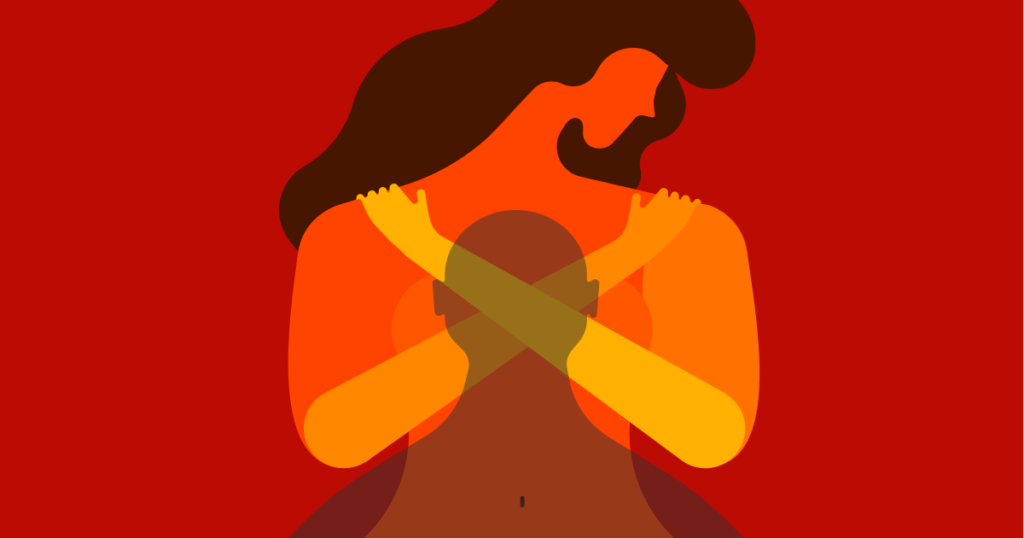

Around 243 million women aged 15-49 have been subjected to sexual or physical violence by an intimate partner during the Covid-19 pandemic. UN Women shared these figures in a new report published as part of the “16 Days of Activism” campaign. The campaign aims to raise awareness of violence against women around the world.
Nearly 18 per cent of girls and women worldwide have experienced some form of sexual or physical violence by their partner in the past 12 months according to UN Women, the United Nations entity dedicated to gender equality.
Antonio Guterres, Secretary General of the United Nations (UN) appealed on Twitter to end the shadow pandemic once and for all.
“Violence against women and girls is a global emergency requiring urgent action at all levels, in all spaces and by all people.”
Violence against women & girls is a global emergency requiring urgent action at all levels, in all spaces & by all people.
On Wednesday’s International Day to End Violence against Women I reiterate my appeal to end this shadow pandemic once & for all.#16Days pic.twitter.com/3oreRCRbVl
— António Guterres (@antonioguterres) November 25, 2020
Since the beginning of the global Covid-19 pandemic, violence against women and girls (VAWG) has intensified, according to UN Women data.
Many women found themselves in situations where they have been isolated with abusive partners due to lockdown measures requiring them to stay at home to prevent the spread of the virus. Over 50 percent of the world’s population was under lockdown in early April.
This has led to a significant increase in calls to helplines for victims of domestic violence in many countries.
In the UK, calls to the national abuse hotline increased by 65 per cent in the last week of March, according to domestic abuse commissioner for England and Wales Nicole Jacobs. Similar trends were recorded in the U.S., Canada, Germany and Spain.
In Spain, incidences of domestic violence increased by 30 per cent, in Argentina by 25 per cent, and calls to helplines for victims of domestic violence increased by 33 per cent in Singapore.
Nicole Kidman, UN Women Goodwill Ambassador since 2006, in a video message for the UN “16 Days of Activism campaign” said: “One of the lessons we’ve learned from pandemic is that the home is not a safe place for so many women and so many girls who are subject to domestic violence.”
There is something every one of us can do to end violence against women.
This #16Days of Activism, hear our Goodwill Ambassador Nicole Kidman’s call to action.#orangetheworld #GenerationEqualitypic.twitter.com/JpDEcodnvG
— UN Women (@UN_Women) November 25, 2020
Globally, even before the pandemic, 1 in 3 women experienced physical or sexual violence by their partner, which is the most common and widespread form of violence, according to the UN Women data.
The report also shows that less than 40 per cent of women who experience violence seek help. When they do, they usually turn to family or friends.
Less than 10 per cent of women who report violence turn to the police for help.
The UN have pointed out that there is a problem at a global level in relation to ineffective implementation of laws that should prevent violence against women.
“The lockdowns, school closures, financial uncertainty and food insecurity spurred on by the COVID-19 pandemic has led to an alarming spike in domestic violence, and further put women and girls at increased risk of other forms of violence, such as sexual exploitation and harassment, child marriage and female genital mutilation,” UN Women said in the report.
View this post on Instagram
In 35 countries around the world, there are no laws that prevent violence against women and 34 countries have not yet criminalised rape within marriage, and do not give women the opportunity to file a lawsuit.
The UN points out that the practice of female genital mutilation is present in 91 countries, and as many as 41 countries have not prohibited it by law.
As a result, at least 200 million women and girls have undergone genital mutilation in 30 countries where data on the practice exists. In most of these countries, most girls were cut before age five.
“This harmful practice, along with others such as forced marriages, has been pushed further underground during the pandemic,” according to the UN Women report about legal gaps to end violence against women.
The International Day for the Elimination of Violence Against Women is held every year on November 25 to highlight the continued issues women face around the world. This day has been marked since 1999 when the United Nations General Assembly declared it as an international awareness day commemorating the Mirabel sisters, who were killed in the Dominican Republic in the 1960s.